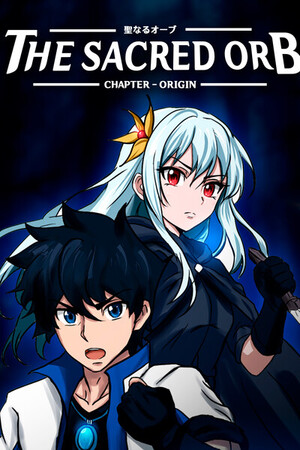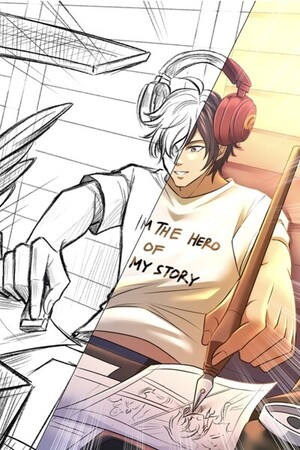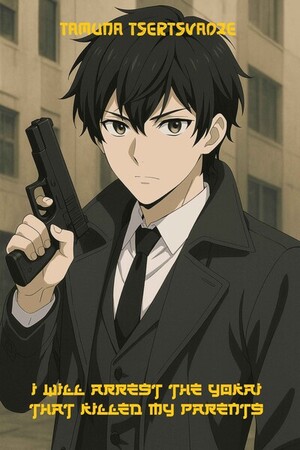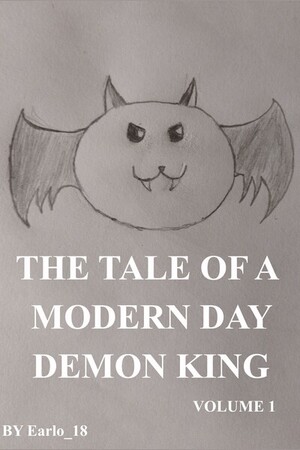Chapter 8:
Conversations with the Wind
The Sacred Orb
Morning broke clear over Azoth, the sky so clean it seemed freshly polished. The eastern courtyard breathed peace: laurels, a pond where fish kissed the surface, ribbons strung between columns that the wind set dancing. There, upon a flat stone, the Sage of Air waited for Asori with a basket of fruit and a bamboo staff resting at his side.
Asori arrived with a lazy gait, black hair still damp with dew. When he spotted the basket, he frowned.
—If you’re throwing apples at me again today, I demand caramel sauce.
The Sage smiled without showing teeth.
—Today’s sweetness is understanding why you caught one yesterday and let six die. Come.
Asori huffed, but took his place before him. The Sage took his wrists and set his arms—not too tense, not too slack—lowered his shoulders, and aligned his chin with the lightest touch.
—Again: breathe through your nose. Count four on the way in, six on the way out. Astral answers to rhythm, like a blacksmith’s bellows. Without rhythm, there is no forge.
Asori obeyed, grudgingly. Air went in cold, out warm. Around him, the courtyard seemed to widen.
—Do you know the first thing the wind breaks in a fight? —asked the Sage.
—My patience. —Asori replied.
—Attention —the Sage corrected, unruffled—. He who looks at one thing and forgets the others dies. The wind isn’t a line; it’s a conversation. Close your eyes.
Asori closed them.
—I’m going to drop an apple —said the Sage—. But I don’t want you to catch it; I want you to tell me where it changes course as it passes through these ribbons.
Blind, Asori felt sun on his skin, the pond’s murmur, a petal tapping his calf. The Sage lifted the fruit. Let it fall. Air traced a faint brush along Asori’s cheekbone. The fruit slipped through the ribbons; the wind went shiiih; the apple veered a handspan to the left.
—…Left, a handspan. —Asori said, surprising himself.
The apple landed to the right by a handspan.
—You missed —the Sage sing-songed, amused.
Asori cracked an eye, indignant.
—I felt it on my face!
—You felt what happened to you, not what happened to the apple. Your Astral still thinks everything spins around you. Don’t let someone read your palm—learn to read the air.
He dropped another. Asori missed again. Twice more. On the fifth try he pressed his lips thin—and then he heard not the fruit’s thud but a tickle that tugged the ribbons first, skimmed the water second, and finally brushed his ear, as if someone whispered from a different angle.
—Right… two fingers lower —he murmured.
The apple bent exactly two fingers.
The Sage didn’t applaud. He tied a linen blindfold over Asori’s eyes.
—Now walk. Cross the courtyard without touching the chimes.
Asori raised his hands. He hadn’t seen any chimes, but he heard them—tiny, hanging somewhere, their jingle ready to betray him. He took a step. Wind slipped between his fingers: it’s free here, it collides there, it returns beyond. Another step. A third. On the fourth, the Sage shifted the bamboo staff—a brief gesture, and the air changed direction. The chimes grew taut. Asori corrected at the last second. Nothing rang.
—Again —said the Sage.
On the fifth run he clipped the pond’s stone and, by pure instinct, leaned the opposite way. The wind handed him back his balance. The chimes stayed silent.
—You’re beginning to understand —the Sage granted, setting the staff aside—. Your Astral is starting to listen.
Asori pulled off the blindfold, sweat on his brow.
—And this whole circus will save me from a sword stroke?
—It’ll save you from yourself —the Sage shot back—. And that, boy, is the hardest part.
In another wing of the castle, Blair walked a corridor of stained glass. Her white hair, still damp, fell over her robe. The flower-jewel on her head throbbed softly. Passing a certain window, she felt it: a gentle tug between chest and belly, like when, as a child, she took her mother’s hand in a crowd.
—Asori.
She couldn’t see him, but knew he was in the eastern courtyard, measuring steps not far from the pond. She sensed his impatience like a taut thread; his pride like a poorly tied knot; his stubbornness like wet stone.
She pushed into the map room. Tifa bent over parchments, quills, and war pieces.
—That face again? —Tifa asked without looking up.
—It’s not that face —Blair protested, though it was exactly that face—. It’s… him. I feel when he’s irritated. I feel when he gets it right. And clearer each time. If I go too far… —she swallowed—. Aunt, I’m afraid if he fell ill, not even a healer could help him.
Tifa set the quill down and met her eyes.
—You knew that when you kissed him.
—I know —Blair admitted, voice low—. I don’t regret it. But I can’t sit on my hands. There’s this power in me that, when it wakes, isn’t me. And… I’m afraid of hurting someone. Him.
—Don’t try to control it alone —Tifa said firmly—. It will consume you. Don’t name it or treat it like a pet. Leave it where it is until you learn to inhabit it.
—And if… I never learn?
—Then you’ll have to live with your hands in the fire without burning —Tifa answered, a sad spark in her eyes—. As others did before.
Blair clenched her fists.
—Trust him —Tifa added—. If you don’t trust, you won’t grow as a team.
Blair was about to retort when the tug in her chest changed tone. Laughter—laughter that wasn’t hers. In the courtyard, Asori had just stumbled and, out of pure cheek, saved the fall with a clumsy spin. Blair bit her lip to keep from laughing. Tifa glanced sideways.
—What?
—Nothing —Blair said, eyes bright—. He’s fine.
The sun stood high when the Sage set the staff aside and sat back on the stone. Asori, shirt clinging to his skin, drank water from a bowl.
—Why are you so hung up on Astral? —he asked—. If a strike comes, I dodge; if I can, I block; if not, I run. What else is there?
—Strength without Astral is a statue —said the Sage—. And a statue doesn’t learn. When you were wounded in the forest, your Awakening lent you others’ hands. That’s why you crushed him: you weren’t you; you were you all. Now, without death at your throat, they won’t lend you anything. What remains is to be yourself. And learn.
Asori looked away.
—I don’t want to be anyone’s weapon.
—Neither do I —the Sage admitted, and his eyes went old all at once—. And yet the wind blows though war exists. You train to survive what already hunts you. Not to please kings.
—Queens —Asori muttered, thinking of Tifa.
The Sage suppressed a smile.
—Close your eyes again. You’ll feel three things: my hand, the breeze, and…
He didn’t finish. Asori had already felt the third: a warm, familiar tickle that came not from the courtyard nor from the Sage. From elsewhere—from someone… from Blair. Asori tensed.
—Don’t think about Blair —the Sage said, amused—. Don’t make it obvious.
—I’m not thinking about her! —Asori lied, crimson.
The Sage dropped three apples at once. Reflexively, Asori raised two hands… and a light gust shifted the weight to the right. He turned his wrist and caught the third. He opened his eyes, unbelieving.
—The wind is beginning to recognize you —said the Sage.
—Or Blair laughed at me at just the right moment —Asori grumbled, then lowered his voice—. Is this going to… get weirder?
—Much. And more useful, if you stop running.
Asori didn’t answer. He kept quiet because, though he wouldn’t admit it, he felt… proud. Small, but proud.
Dusk scraped oranges and violets across the sky. Blair crossed the courtyard with a kerchief full of rolls. She wore her hood: in the city she was still “dead.” The Sage took his leave with a nod and vanished down the corridors, leaving them by the pond.
Blair offered the bundle.
—Fresh bread. To vary from… bricks.
Asori received it with mock solemnity.
—My palate isn’t prepared for such luxury.
They sat on the low stone by the water. Far off, a band rehearsed: horns, drums. The city was getting ready for something; you could feel it in the streets’ rhythm and the multiplying guards.
—I caught three apples today —Asori said, chewing—. And only destroyed… —he counted on his fingers— …six.
—Progress —Blair smiled—. Next time we’ll level an entire bakery.
—Please —Asori raised a hand—, show respect for hard bread. It was our first dinner together.
Blair rolled her eyes, but kept smiling.
—How do you feel? —she asked, for once without a joke.
Asori looked at the water. His face warped in the fish’s ripples.
—Like an apprentice of nothing who has to learn everything —he admitted—. I don’t want to fight, Blair. I don’t want to… —he searched for words— …owe anyone anything.
—You don’t owe me anything —Blair answered softly—. I’m glad you’re alive. That’s enough for me.
He lowered his gaze, fingers worrying the edge of the kerchief.
—You… —he dared—. When that power comes over you, what do you feel?
Blair took her time.
—Like someone opening a door I don’t remember building —she whispered—. And beyond it is a whole room made of me, but… it isn’t me. It’s light and fire and… I don’t have the hands to hold it. It scares me.
Asori turned his face. For once, he said nothing sarcastic. He only nodded.
—Don’t name it —she added, not looking at him, remembering what they’d felt during training—. Not yet.
—I wasn’t going to —he lied, half serious, half joking.
Blair laughed under her breath.
—Idiot.
—Silver-Haired Princess.
They looked at each other, and for a long second there was no war. Just two people eating fresh bread by a pond.
From the corridor, a shadow approached at pace. A soldier in Azoth armor stopped, fist to chest.
—My queen requests your presence —he said, bowing to Blair—. Rumors from the Capital: merchants claim a grand tournament will be announced. Rewards… and something else. They say the second prize is… —he hesitated— …a “living treasure.”
—A slave? —Asori spat, disgusted.
—A living treasure —the soldier repeated, uneasy.
Blair stood, serious.
—Tell my aunt we’ll hear the details —she ordered—. Thank you.
When the soldier left, the courtyard filled again with crickets.
—They’re really going to turn a person into a prize? —Asori crushed the bread, indignant.
—The Capital does what it thinks will draw warriors —Blair said, bitter—. If it’s true, many dangerous people will gather there. And… maybe someone who needs our help.
Asori couldn’t tell if she meant the “living treasure” or him.
The Sage reappeared without a sound, as if the courtyard had woven him from the breeze.
—The wind carries songs from the Capital —he said, more to himself than to them—. Songs… and snares.
He looked at Asori.
—Tomorrow at dawn, we repeat the exercise. Three apples, then five. And the chime walk—running.
—Running? —Asori’s eyes widened—. You want me to break my teeth?
—I want you to learn not to. —the Sage replied.
Blair pulled her hood back up.
—Will you come? —she asked, tilting her head.
A spark lit Asori’s eyes.
—I caught three apples —he said—. I can’t retire at my peak.
Blair smiled and stepped closer.
—Good —she whispered—. A tie.
Asori looked at her with feigned gravity.
—We’re two to two. Careful, Silver-Haired Princess.
—Afraid to lose?
—Afraid to beat you —he said, and for the first time the joke didn’t sound like armor but like clumsy flirting.
Blair turned away before he could see her blush. The tug in her chest warmed.
The Sage watched them in silence. Then he lifted his gaze to the sky, where the first stars pricked tiny holes in the blue.
—The wind has started speaking to you —he murmured—. Now learn to hear it without shouting.
Trumpets and drums drifted again from the city. Night carried promises of crowds, posters, wagers, and new names. The Capital was making ready.
Asori tightened his grip on the kerchief of fresh bread, looked at the pond, and, without admitting it, wished to catch five apples tomorrow. Not for the war. Not for the queen. For himself. So he wouldn’t fail when the real blow came.




Please sign in to leave a comment.